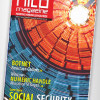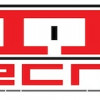Bertelsmann steps up CD security efforts
Under the agreement, Bertelsmann's Sonopress will use Midbar's technology, dubbed Cactus Data Shield, to thwart potential pirates attempting to illegally reproduce music. The technology comes in three versions. Albums containing CDS-100 can only be listened to via traditional CD players, while those with CDS-200 can be played on CD players and PCs. The third version, CDS-300, can be played on both types of devices; it also lets people download music stored on the CD to a computer hard drive.
The deal signals Midbar's aggressive push into the market for protecting recordings. In August, the company released 1 million copy-protected CDs in Europe, and it plans to enter the U.S. market.
The Israeli company faces a swath of competition. In the United States, Bertelsmann is experimenting with technologies from other security providers to create
copy-protected CDs for music on its BMG Entertainment label. Such providers include Midbar rivals SunnComm, Macrovision, and a handful of other
companies. Last month, the media giant's Sonopress division agreed to use and resell Macrovision's technology in an attempt to discourage CD copying.
Macrovision also has been quietly testing copy-protected CDs on
unwitting consumers for the last several months. Album titles and labels involved have not been disclosed to ensure unbiased feedback, according to the company.
P.J. McNealy, a media analyst for GartnerG2, a division of research firm Gartner, said it's tough to place Midbar or any other company in the lead because the digital market is still in infancy.
"Everybody is going to have a bad time experimenting with this stuff because every hacker out there is going to target these guys--(Midbar) or any company that does this stuff," McNealy said. "So they're going to hit some pitfalls along the way."
Attempts to implement such technology have run into difficulties in the past.
Last year, Midbar worked with BMG Germany to test secure CDs. After shipping 130,000 copy-protected discs, the label abandoned the project as complaints piled up from customers. BMG said it had compatibility problems with 2
percent to 3 percent of all CD and DVD players, which were unable to play the discs.
A Midbar representative said the company used the episode "as a learning experience" and that it has since corrected the problem. The company added that it has since released copy-protected CDs in the Czech Republic and
Slovakia without any problems.
"Our purpose is to help combat unauthorized reproduction of content; return the power and the control back to the artists, the producer and the legitimate recording companies; and last, but not least, meet consumer
expectations for high-quality audio," Ran Alcalay, chief executive of
Midbar, said in a statement.
CNet.






































































